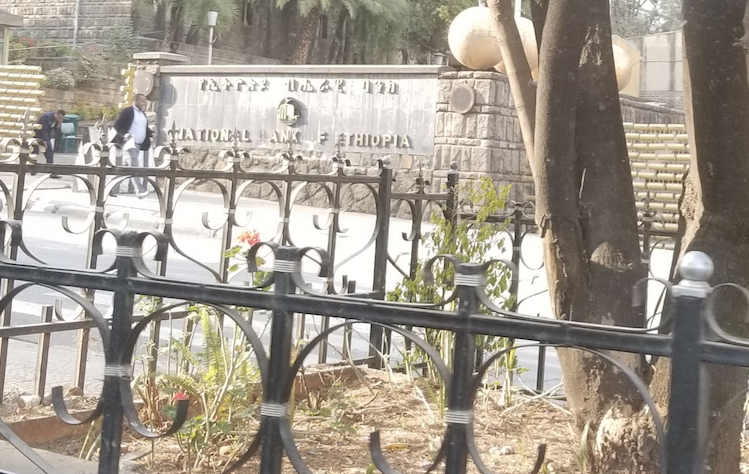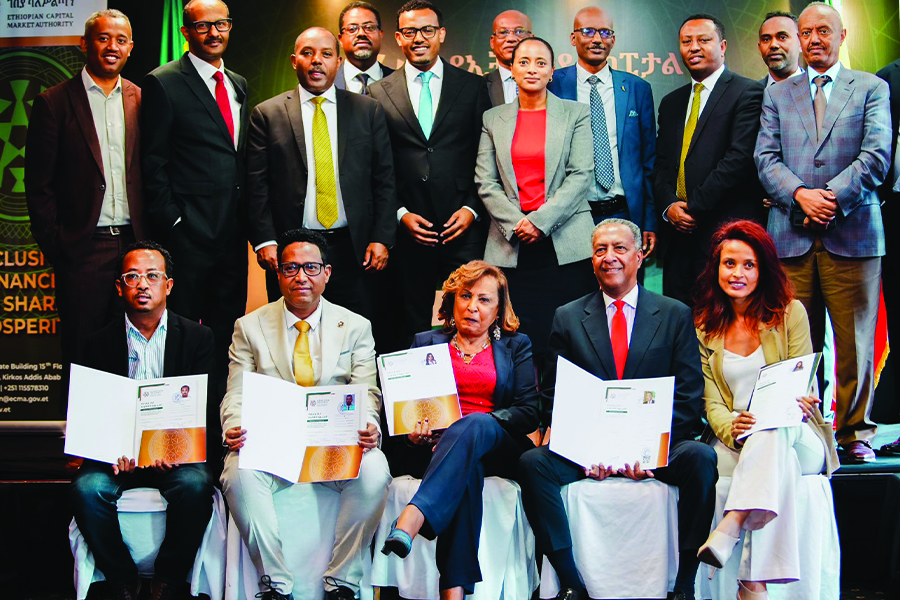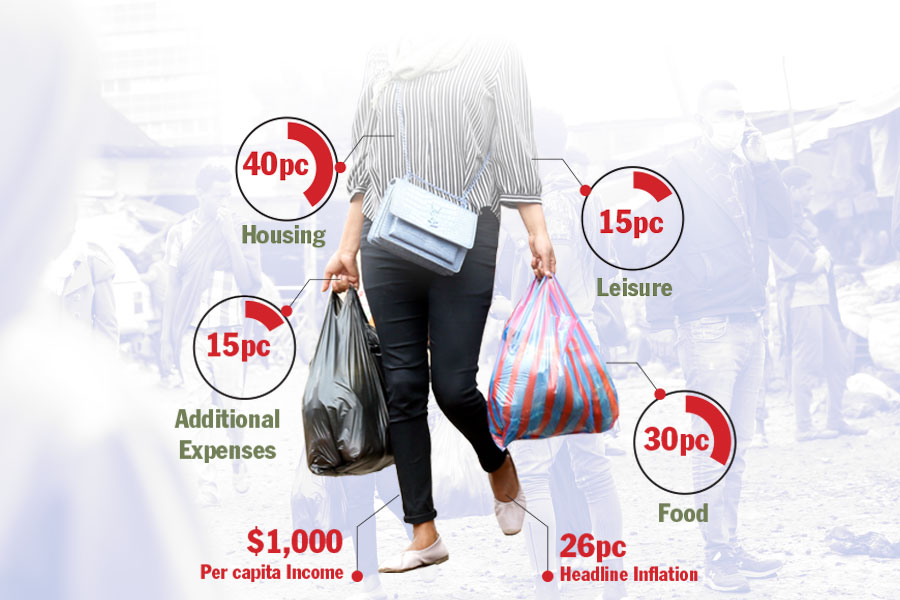
Radar | Aug 20,2022
Mar 7 , 2020
By FASIKA TADESSE ( FORTUNE STAFF WRITER )
 The Bank started transferring the foreign currency to the Ethiopian Shipping & Logistics Services Enterprise last month following a letter from the National Bank of Ethiopia (NBE).
The Bank started transferring the foreign currency to the Ethiopian Shipping & Logistics Services Enterprise last month following a letter from the National Bank of Ethiopia (NBE). Commercial Bank of Ethiopia (CBE) started transferring 25 million dollars to the state logistics monopoly, which is challenged with obtaining foreign currency, on a monthly basis. The forex will be used to cover the shipment and transportation cost of imported wheat and fertiliser.
The Bank started transferring the foreign currency to the Ethiopian Shipping & Logistics Services Enterprise last month following a letter from the National Bank of Ethiopia (NBE). CBE will provide the value from the foreign currency it surrenders to the central bank.
Commercial banks are supposed to surrender 30pc of their foreign currency earnings to the accounts of NBE. The scheme was started two and a half years ago to allocate forex for the procurement of strategic goods such as petroleum, wheat, fertiliser and sugar, as well as payments made to cover the country's expenses for shipping imported items.
The Enterprise, which needs a minimum of 45 million dollars every month from CBE to ship and transport commodities, will use the value to cover shipping rental fees as well as port services. Of the allotment, 20 million dollars is for container rentals and operational expenses. It also collects 15 million dollars monthly from private banks.
"Out of our total demand of foreign currency," said Roba Megersa, CEO of the Enterprise, "we get only 30pc of it."
The foreign currency crunch has dominated the country's economy, and it has become even more severe over the past couple of years. In the last fiscal year, the net foreign assets of the NBE and the commercial banks decreased by 758 million dollars and 112.5 million dollars, respectively. As of September 30, 2019, the gross foreign reserve coverage stood at 1.7 months of imports of goods and non-factor services.
The central bank made the intervention to ensure that the two commodities were delivered on time, Roba explained. The Enterprise, which has 100 million dollars in its foreign currency account, generates the forex from the services it provides to its foreign clients, including ship rental and transporting shipments between ports for other countries.
So far, the Enterprise has transported one million tonnes of wheat, which is imported for market stabilisation and humanitarian assistance, to the Port of Djibouti, 75pc of which has already been transported into the country.
Out of the total 26 ships of fertiliser, it transported 12 to the Port. So far, 380,000tn of fertiliser has been transported into the country. The fertiliser, which will be used for three years, is ferried from the ports of Morocco, China, the United Arab Emirates (UAE) and Egypt. DHL Global and Diamond Shipping transported it for 42 million dollars.
"Due to the forex crunch," said Roba, "we're unable to settle outstanding payments for services we receive."
The Enterprise, which carries 17,000 containers a month, owes 60 million dollars in unsettled payments for containers and ship rental fees. It also owes the Port of Djibouti 20 million dollars for an outstanding payment that was supposed to be paid for port service.
Being a state monopoly, the Enterprise has an 80pc market share in the country. It exclusively transports wheat, fertiliser and sugar to the country. A significant amount of imported rebar and coal are ferried by the Enterprise, which carried 108,000 containers during the first half of the current fiscal year.
Once the wheat and the fertiliser are fully transported into the country, the 25-million-dollar allocation from the CBE, which generated 139.4 million dollars from exports and 1.7 billion dollars from remittances in six months, will be stopped, according to Roba.
Officials at the central bank and the commercial bank were not immediately available for comment.
PUBLISHED ON
Mar 07,2020 [ VOL
20 , NO
1036]

Radar | May 31,2025

Commentaries | Aug 02,2025

Radar | Mar 05,2022

Fortune News | Aug 07,2021

Exclusive Interviews | Sep 06,2025

Dec 22 , 2024 . By TIZITA SHEWAFERAW
Charged with transforming colossal state-owned enterprises into modern and competitiv...

Aug 18 , 2024 . By AKSAH ITALO
Although predictable Yonas Zerihun's job in the ride-hailing service is not immune to...

Jul 28 , 2024 . By TIZITA SHEWAFERAW
Unhabitual, perhaps too many, Samuel Gebreyohannes, 38, used to occasionally enjoy a couple of beers at breakfast. However, he recently swit...

Jul 13 , 2024 . By AKSAH ITALO
Investors who rely on tractors, trucks, and field vehicles for commuting, transporting commodities, and f...

Nov 1 , 2025
The National Bank of Ethiopia (NBE) issued a statement two weeks ago that appeared to...

Oct 25 , 2025
The regulatory machinery is on overdrive. In only two years, no fewer than 35 new pro...

Oct 18 , 2025
The political establishment, notably the ruling party and its top brass, has become p...

Oct 11 , 2025
Ladislas Farago, a roving Associated Press (AP) correspondent, arrived in Ethiopia in...